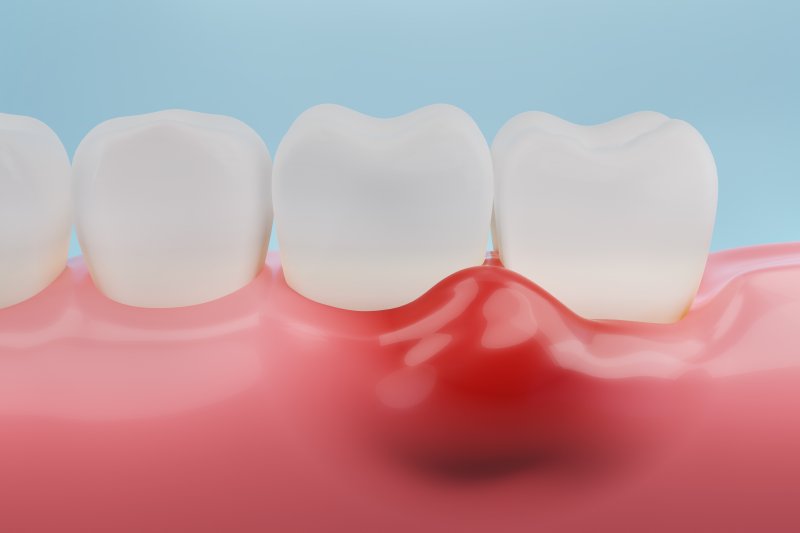
If someone in your family is dealing with gum disease, you may wonder if this condition is hereditary. The American Dental Association reports that genetic factors can increase a person’s risk of gum disease, and these infections can lead to serious consequences for your oral health if they are left untreated. Here’s what you should know about how some genetic conditions can increase your risk of gum disease as well as a few tips for keeping your smile healthy.
What Is Gum Disease?
Gum disease is an oral infection that begins as inflammation of the gum tissue called gingivitis, and while the problem may seem negligible at first, it will only get worse if left untreated. If the infection goes unaddressed for too long, it will progress to the stage of periodontitis, which causes permanent damage and must be managed with recurring treatments from your dentist. While gingivitis can cause symptoms like redness, tenderness, or bleeding during flossing, periodontitis can involve symptoms like a sour taste, gum recession, jawbone erosion, and tooth loss.
What Genetic Conditions Can Increase the Risk of Gum Disease?
Some research suggests that certain hereditary health conditions such as type 1 diabetes and many autoimmune disorders can make a person more vulnerable to gum disease. Similarly, some medications used to treat genetically influenced conditions can cause side effects that make gum disease more likely such as dry mouth. Some hereditary features such as crooked teeth can also make fighting oral infections with proper dental hygiene more difficult.
How Can I Keep My Gums Healthy?
Luckily, excellent oral health habits can help you avoid gum disease even if you are genetically susceptible to it. To keep your mouth healthy, stick to great habits like:
- Proper oral hygiene: Every day, brush, floss, and use antibacterial mouthwash to clear away harmful oral bacteria and the food debris they feed upon.
- Seeing your dentist regularly: The American Dental Association recommends seeing your dentist at least twice a year for routine exams and cleanings.
- Limiting your sugar intake: Sugar provides harmful oral bacteria with the simple chemical fuel they need to multiply rapidly and infect your teeth and gums.
It’s also a great idea to avoid bad habits that can compromise your gums’ ability to heal and fight infection such as smoking and excessive alcohol consumption.
Healthy gums provide the foundation you need for healthy teeth. By taking the proper measures to care for your mouth, you can minimize your chances of experiencing gingivitis and periodontitis.
About the Author
Dr. Lauri Barge earned her dental doctorate at the Texas A&M College of Dentistry and underwent a General Practice Residency program at the Olin E. Teague VA Hospital. She is proud to be a member of the American Dental Association, the Academy of General Dentistry, and the Texas Dental Association. Her office in Flower Mound offers general, restorative, cosmetic, and emergency dentistry as well as gum disease treatments. If you are concerned about gum disease, contact her office online or dial (972) 539-3800.
